FRONTIERS • COMBONI SCHOLASTICATE
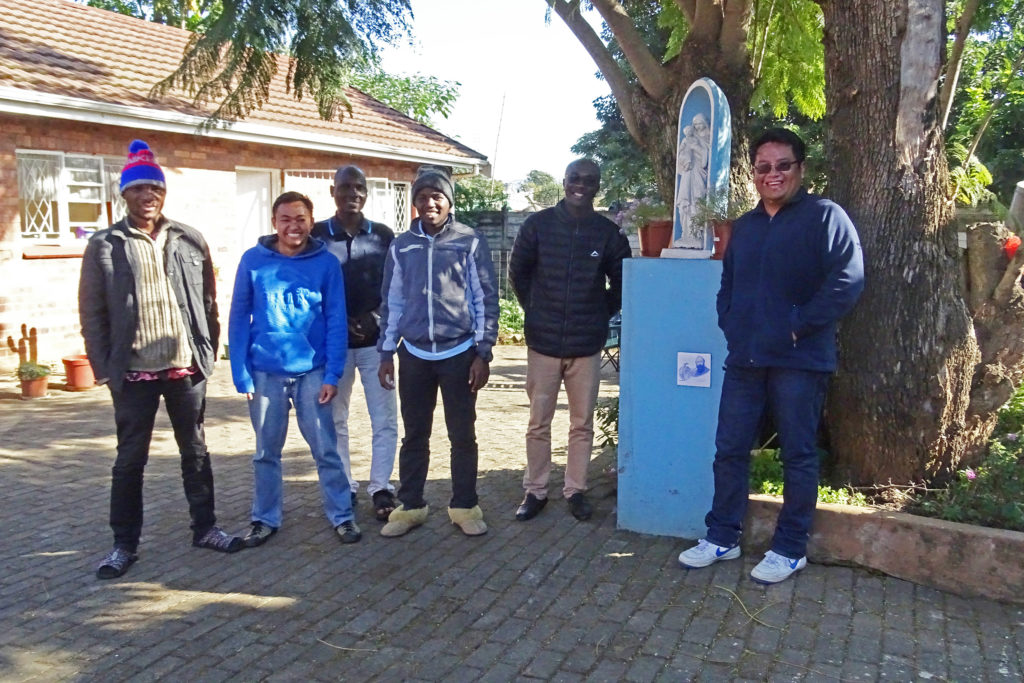
in this interview in the courtyard of their house in Pietermaritzburg.
MISSION´S FUTURE IN AFRICA AND ASIA?
BY CARLA FIBLA | Journalist, reporting from Pietermaritzburg, Kwazulu-Natal
THEOLOGY STUDENTS hailing from various countries are preparing themselves to become priests with the Comboni’s. In a conversation, they share their vocation story and how they see their future ministry in the Church
It is Saturday, the day for cleaning rooms and common places in the Comboni Scholasticate in Pietermaritzburg. The group of 14 students who have been living together for months, organize themselves for cooking, sharing the prayers in the morning, and their silence in the afternoon.
We asked some to put off their tasks for a while and share a conversation about what it means to study and train to be, one day, a Comboni Missionary. The age of the group is between 27 and 33 years, and they come from the Philippines, Mexico, Kenya, Central African Republic, Zambia and Mozambique.
They are in different years of their formation, so we focus the conversation on their origin, their desire to dedicate their lives to the Mission, their initial difficulties and what they would like to contribute or change in the work carried by missionaries on the ground.
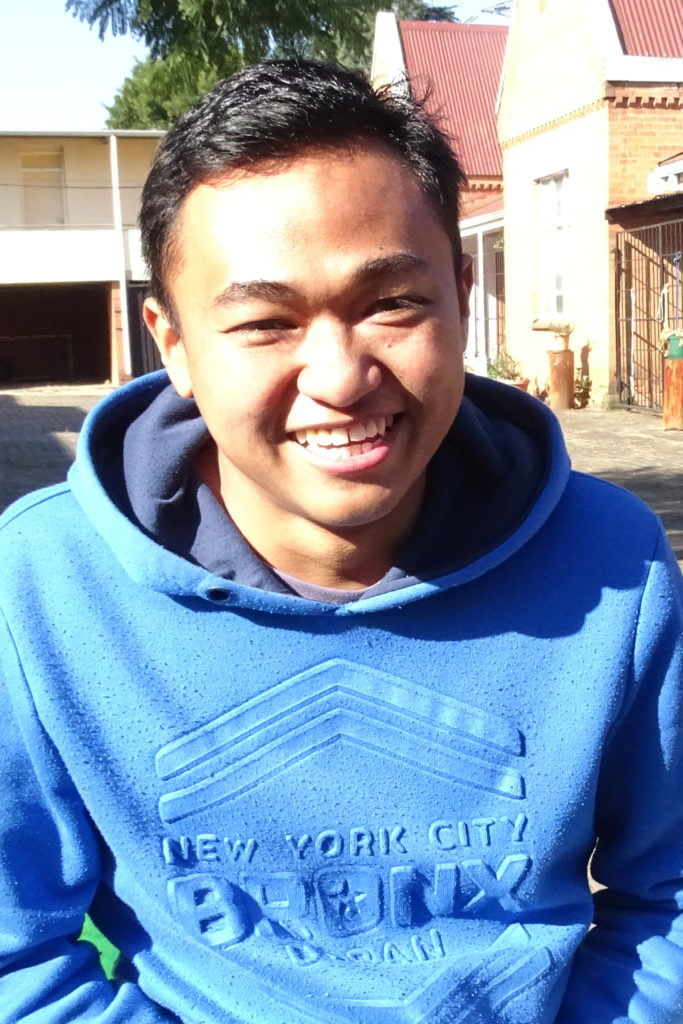
Benjo Raposa, from the Philippines, 33 years old (BR)
Since childhood, I dreamt of becoming a missionary, especially during high school. I read missionary stories and magazines that motivated me. I continued my education till university graduation, but the desire was still present. The path of the Mission was a way to return to the Lord, other blessings received in my life.
I am grateful, even if this life is not easy. There are difficulties, like everywhere, joys and pains, but you learn from everything, and that matures you. When I started the formation, it was a different life for me; being away from family, friends and cultures you´ve grown up with; you are assigned to a different place, with new people and their life stories.
Fernando Uribe Mendoza, from Mexico, 27 years old (FUM)
My uncle is a Comboni Missionary. Since childhood, I was interested in what he was doing and there started my desire to follow in his footsteps. He was explaining to us his mission reality during his holidays. I used to go with him to activities and meetings. I realized that my family was not only the natural one, but the Comboni brothers are also a family. About the difficult moments, I consider myself a relaxed person, so I haven´t found a lot of difficulties; I like new things that motivate me.
There are difficulties, like everywhere, joys and pains, but you learn from everything, and that matures you (BR)
Mark Uanyama, from Kenya, 27 years old (MU)
I was born into a Catholic family and when I was very young, I was led to the practice of the faith. That inspired me to become a priest. I didn´t know about the missionaries until high school, when a missionary came to celebrate Mass and brought us a calendar. One of its titles was: ‘Why not become a missionary?’ Priesthood, as a vocation, is something very respected in my village; people see you as successful in life, and they create distance; there is so much respect that you cannot be free; they see you as a great person, a holy one, and they don´t allow you to do anything at home. It is a gap, created in the name of respect.
Teo Graçia, from Central African Republic, 31 years old (TG)
I was born into a Christian family and most of my fathers´ friends were priests. I had the desire to become a priest, but I didn´t know anything about missionaries. The most difficult thing was to inform my family. It was not easy for them to accept it because we are not so many and my father’s plans for me was to support the family. It was a shock for him and I had to cut the relationship with my family for a while, but afterwards he accepted it and we reconciled.
Kennedy Bwanya, from Zambia, 28 years old (KB)
I desired to serve the people as a missionary since I was very young. I decided to follow religious life, seeing the injustices in society. I have been studying in a language familiar to me and I didn´t have to make too much effort with it, but the culture is different from one country to another.
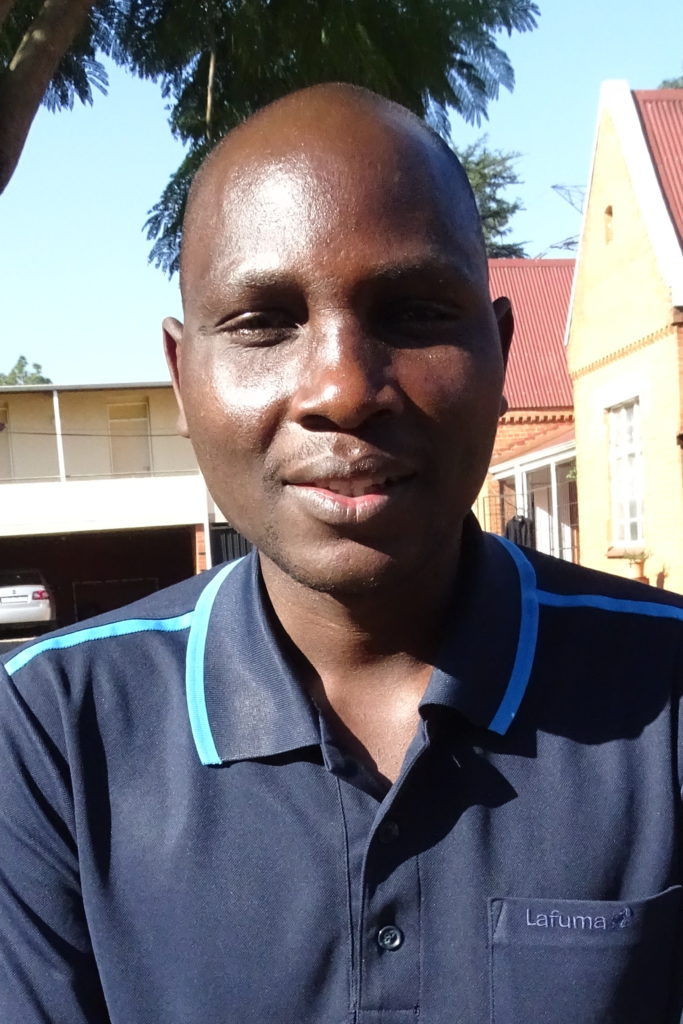
Madalitso Castomu Supia, from Mozambique, 29 years old (MCS)
The desire to become a Comboni Missionary didn’t occur to me in a specific moment. I come from an evangelical family. When I entered the Catholic Church, I wanted to be someone that could preach and have the opportunity to share my faith. Then, I heard about a vocational group. It was difficult to choose the congregation, but I just wanted to become a missionary.
Now Africa is ready, with the values of the Gospel that bring richness into the Church (MCS)
Most people think that a missionary has a lot of money, cars, and is always helping people, and that is difficult to deal with. The other issue is celibacy. In Africa, it is difficult to understand our way of life; people see it as a lack of blessing. Some family members will ask you: are you really fine? How can a man decide not to marry? When you are at home it is a real challenge as you find all your friends and brothers are married.
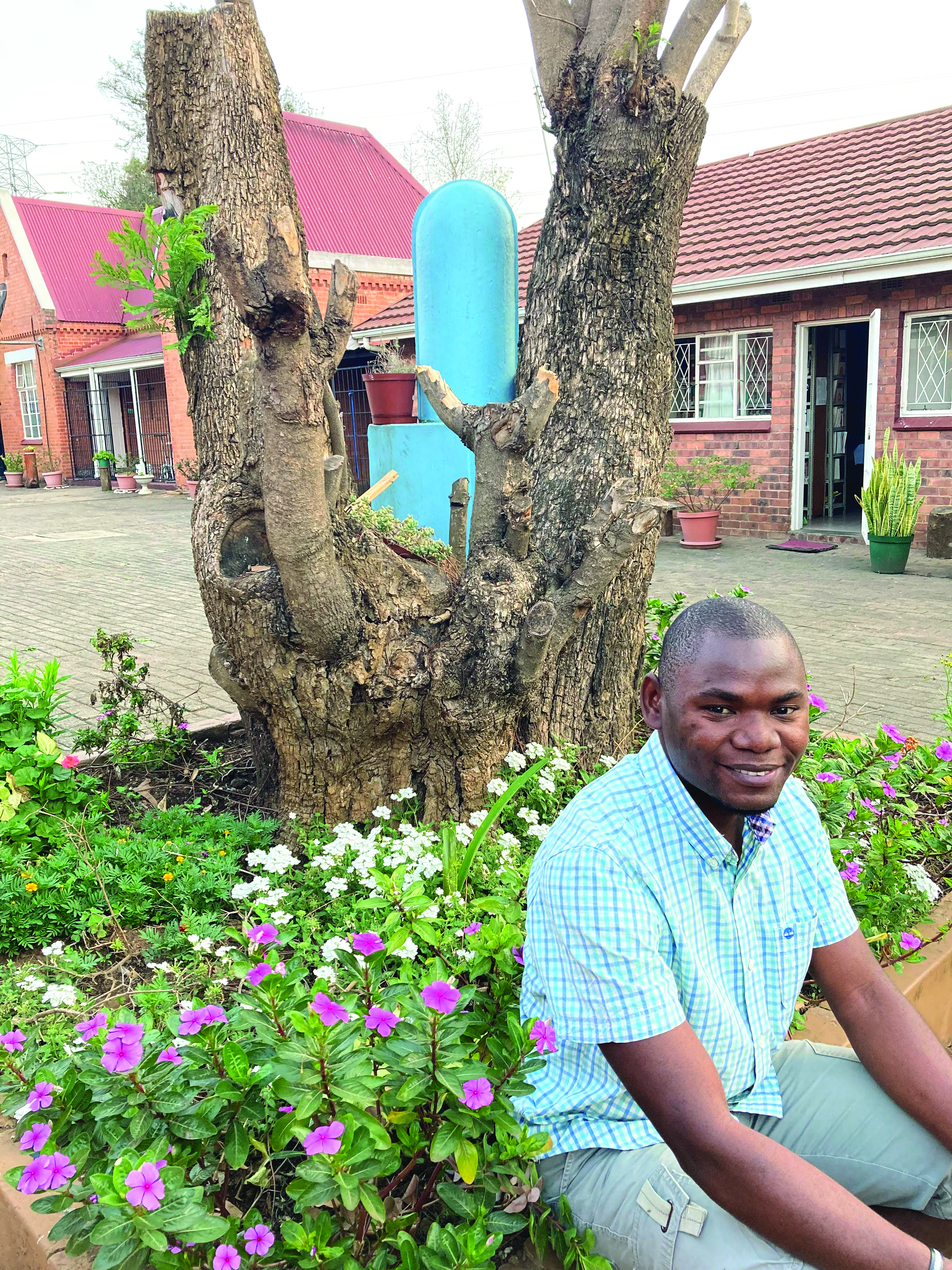
Valeriano Silva, from Mozambique, 28 years old (VS)
I came from a Christian family, though most of my family are Muslims, but till now I didn´t have any conflict. We try to understand each other. In my parish, from 1959 till 2017, the only congregation was the Comboni Missionaries. From their experience, I thought that maybe I could be one of them.
It was not easy for my parents to accept it. In my culture, the one who takes the decisions is not the father, but the uncle from the maternal side. I explained it to him and he gave his consent. Another difficulty was that in secondary school I had a beautiful girlfriend and the relationship was very strong. It was not easy for her to understand my decision.
In my parish, the only congregation was the Comboni Missionaries. I thought that maybe I could be one of them (VS)
Worldwide (WW): In the Western world, the number of vocations is decreasing and religion is not as important as it was in the past, perhaps because of the way of life. Do you see it as a loss or as a normal process? Is the future of Mission in Africa and Asia?
MCS: I don´t see that what is happening with vocations in Europe is due to a lack of faith. If I look back at the history of our Congregation, there was always an open door when others were closing. Before, in Africa, most of the missionaries were coming from the North; but gradually, vocations started decreasing there and increasing here. It is good to have diversity, not to think that to evangelize is only for Europeans. Now Africa is ready, with the values of the Gospel that bring richness into the Church. Tomorrow we will hear that it is Asia. We must be able to accept all these realities.
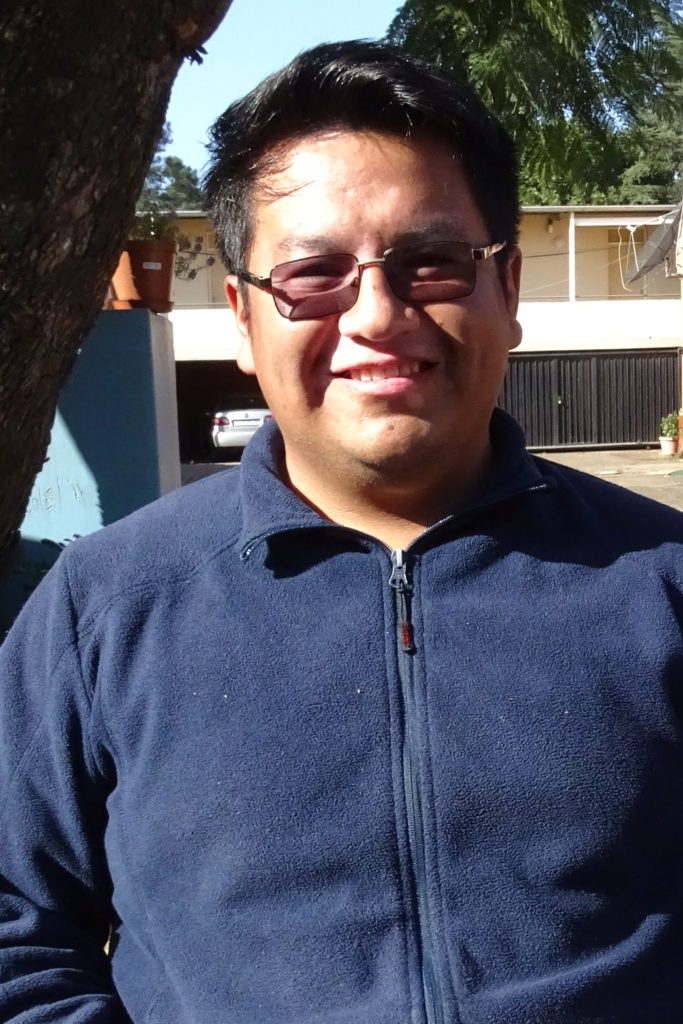
MU: Europe and Africa are not in the same reality. For example, in some places, where there are only two children in a family, if one wants to become a priest, just one is left to take care of the family. Even in Africa, if you tell someone that when you are a religious or a priest, you cannot do your will, have your own car, that if you need to go out you have to inform your superior—you don´t have the young man’s freedom of nowadays.
FUM: I don’t think it is a lack of faith or commitment that Europe is facing. We see many young people concerned about different realities: ecology, peace; they want a change. The loss of vocations is due to different Church scandals and the misunderstanding of the concept of the Church. The Church is not only a few people, it is all of us. We are also responsible and we need to change the face of the institution. Another point is when the Church only cares about the spiritual side of the people; the priests are only involved on Sundays, to give the sacraments, baptize, marry couples. The Church has a role to play in social problems, in everyday life, fighting for ecology, justice, looking for peace. We are not a perfect society, but pilgrims. We can fall, make mistakes, but we need to encourage each other, to proclaim that the Lord’s Word is still alive by our actions.
TG: It is sad this diminution, because Europe taught us the faith and brought us this value. I don´t know the reason, but there are things that change in life, like culture. The Church in Africa is still growing and that´s why vocations are still increasing. Nowadays, Africans go to Europe to evangelize and that’s not a big deal; the important thing is if the Europeans have lost their value in religion, in faith.
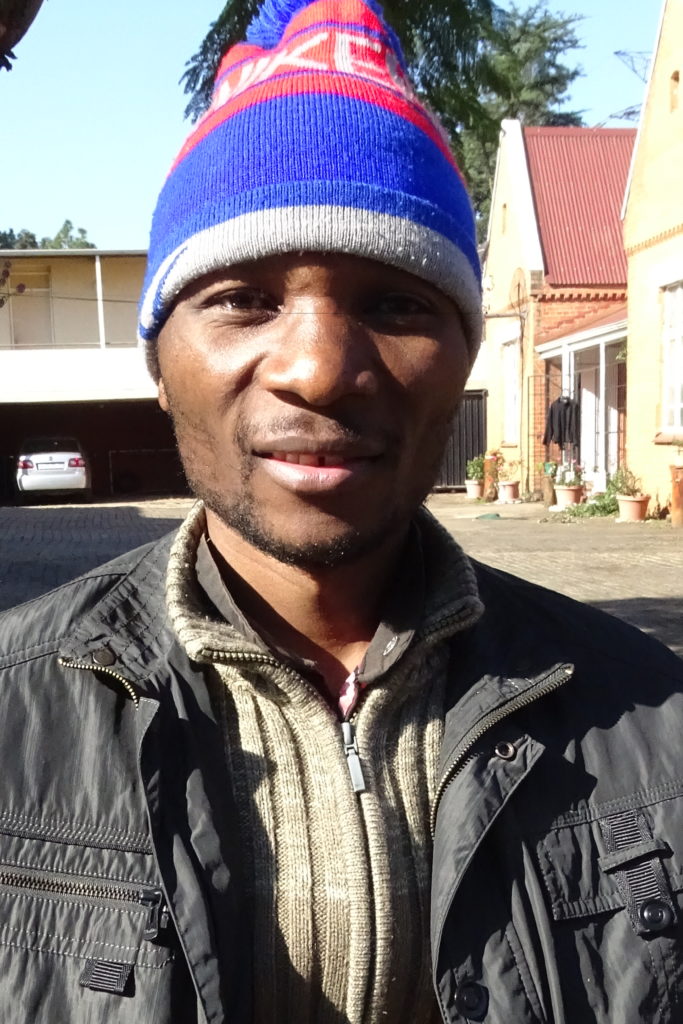
BR: I agree with Fernando. As society becomes richer and wealthier, a misinterpretation of freedom and the understanding of God in everyone’s situation can happen. Then one looks at the Church as a set of rules that constricts one’s freedom. It is among the challenges of modernity itself, and of interpreting the Church. We have to go to what the Gospel is telling us—to love one another—and the values that Jesus Christ taught us. It is a call to go back to the roots.
KB: Another factor is globalization. The challenge is how to give answers through faith. Today, Africa has jumped into the shoes that Europe was wearing and has become missionary.
To be a Christian is not a privilege, but a responsibility (FUM)
WW: You all came from countries with different realities. How close is the Church to the people?
MCS: Maybe we have to go back in history, how missionaries arrived in Africa and brought the Gospel. The association with the government was there. The Gospel was not really helping the people but, for example, killing them in the name of God or helping the colonizers. Afterwards, the Church separated herself from the colonial powers and they were there because of the Gospel. Now, the Church in my country has chosen to be with the local people or the poor. She is on their side and is helpful. We used to discuss in my theological class how to fulfil the mission in Africa. It is clear that the Church must improve her closeness to the people.
FUM: In Mexico, the relationship between the Church and the people has increased. Mexico is a very Catholic country. The Church has an important role in society, and now she is trying to strengthen that relationship. It is not just that the Church has to be there, she has to do something. There are many initiatives for justice and against corruption in which the Church is involved. The consequence of raising her voice, is that the Church has been persecuted, but that is her reason for being: to raise her voice for the voiceless. The main thing to be improved is that some priests don´t want to enter into social issues. They think that they just have to concentrate on Mass and religious matters. Following the Gospel, Jesus said: “Go into the world”. He didn’t say: “go to the churches, and preach the good news”. Be concerned about the realities that affect the world. The Church is not just an institution, it is also her people.
MU: In Kenya the Church is close to the people and the vocations are increasing. The priest is busy with the people, and they trust the Church.
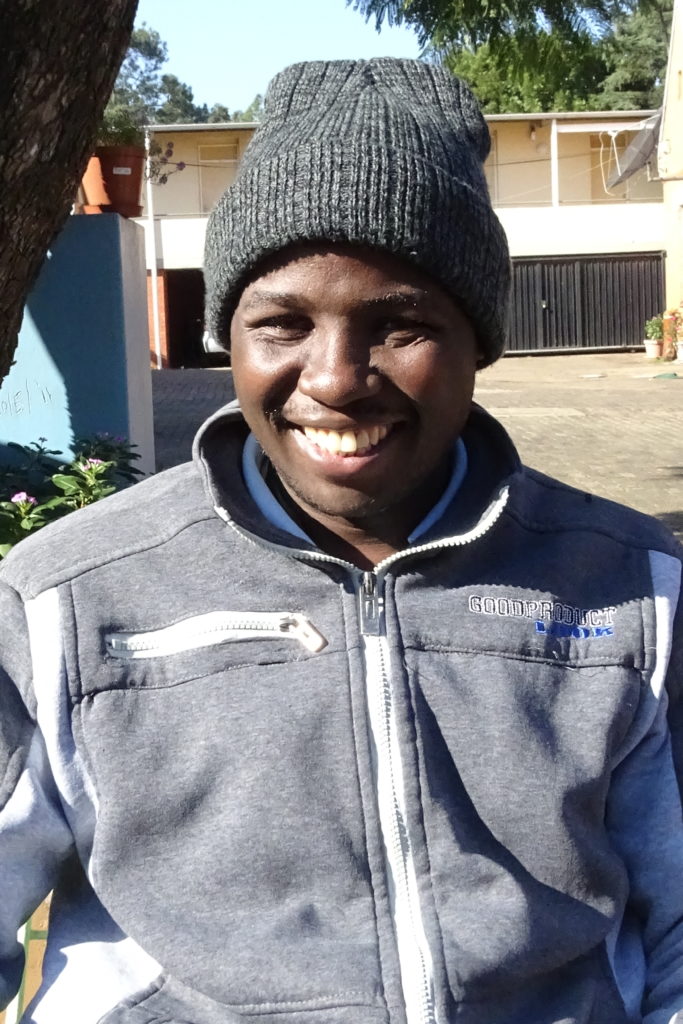
TG: Sometimes I ask myself: if there wouldn’t be the Church, where would my country be? The Church acts according to what is preached. God is love because He loves everybody. In my country, the situation would be worse because it is the Church who welcomes the refugees, Muslims and Christians, without distinction, and has a voice to talk with the government, the UN, etc.
KB: In Zambia, the majority are Christians; a small number of them are Protestants. The Church is very close to the people despite the message from the government that cautions the Church not to go into politics; but there are many organizations that ask the Church to talk to the people, for example, the Commission for Peace and Justice, or during the elections.
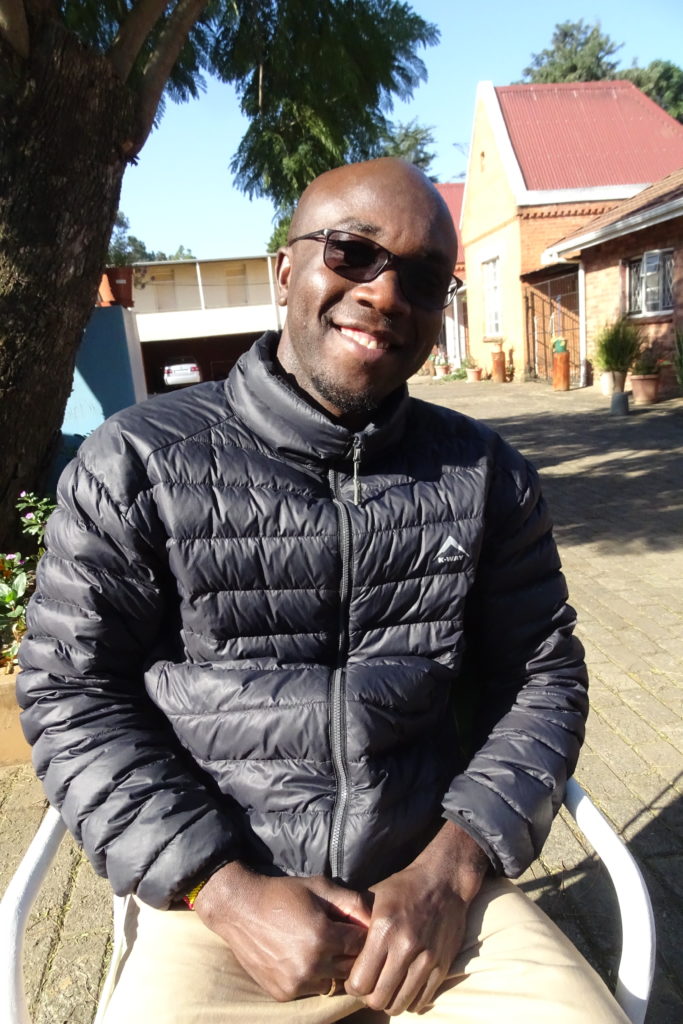
BR: For me, the Church has been very active in the transformation of societies in many parts of the world. In the Philippines, we celebrate 500 years of Christianity this year and I am grateful because the Mission of the Church has entailed not only spiritual knowledge, but also empowerment of communities, awareness of human rights. The Church is in the frontline for the delivery of basic social needs, in partnership with the government. In my country, she has taken an active role in taking down dictators and corrupt governments. The Church has pushed for social reforms and civil rights’ empowerment.
